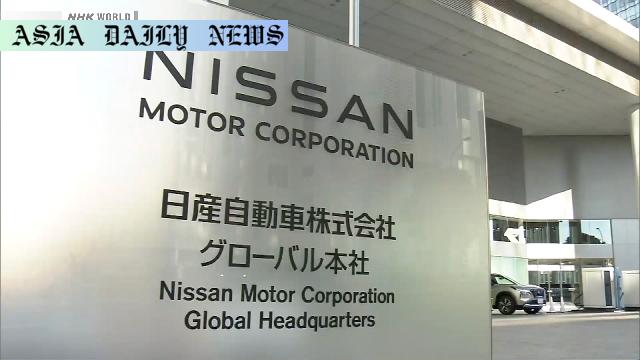Nissan plans to offer early retirement packages to Japanese office staff as part of a larger global workforce reduction strategy.

Nissan Implements Bold Measures to Address Global Challenges
Nissan Motor is taking proactive steps to address its financial struggles, announcing plans to reduce its global workforce by 20,000 jobs by fiscal 2027. This daunting decision reflects the automaker’s urgent need to restructure operations amid declining demand and excessive production capacity. Sources reveal that the workforce cuts will primarily focus on administrative divisions, with 3,600 jobs marked for reduction in these areas. This significant move follows a trend among many global automakers facing similar challenges as they adapt to evolving market conditions and innovative advancements in electric vehicles.
The company has also outlined a plan to shut down seven factories worldwide over the same timeline. Among the facilities earmarked for closure are two domestic plants located in Kanagawa Prefecture, south of Tokyo. This move underscores Nissan’s strategy to streamline production operations and focus on profitability. With excessive operational costs weighing heavily on the company’s performance, experts believe that these bold steps are critical to its survival and long-term success.
Early Retirement Offers: A Strategic and Humane Approach
From July, Nissan plans to extend early retirement offers to its office staff in Japan. Eligible employees will include those aged between 45 and 64 who have completed at least five years of continuous service. Nissan intends to provide generous retirement packages, including enhanced retirement allowances and comprehensive support for reemployment opportunities. By offering attractive incentives for voluntary retirement, the company hopes to minimize disruption and maintain morale within the organization.
Observers commend Nissan’s approach, noting that such measures balance the company’s restructuring goals with a degree of sensitivity toward its workforce. Although the departure of experienced staff may result in a temporary knowledge gap, the company is expected to implement training initiatives to upskill remaining employees and ensure a smooth transition during this period.
Industry Response and Broader Implications
Industry analysts suggest that the restructuring efforts are symptomatic of broader trends impacting the automotive sector. Decelerating global demand, coupled with the rapid rise of electric vehicle technologies, has forced many traditional automakers to revisit their operational models. Nissan’s decision to close factories while supporting staff through this transition highlights a critical balance between aggressive cost-cutting and employee welfare.
These developments also raise important questions about the future of automotive manufacturing in Japan and abroad. Will similar measures be adopted by other companies? And how will governments respond to protect both jobs and technological competitiveness? While Nissan’s bold steps may offer short-term relief, the long-term implications remain uncertain.
Despite these challenges, Nissan appears determined to overcome its hurdles, with its leaders focusing on rebuilding the automaker’s reputation and market performance. In doing so, the company signals its steadfast commitment to recovering from financial pressures while maintaining a degree of responsibility toward its workforce.
Commentary
The Human Cost of Corporate Restructuring
Nissan’s recent announcement to cut 20,000 jobs globally and offer early retirement to employees in Japan brings both strategic foresight and human consequences into focus. While job cuts and cost-saving initiatives are often inevitable for corporations in distress, this decision is particularly significant as it underscores the transformative challenges within the automotive industry.
As the market shifts toward electric and autonomous vehicles, companies like Nissan face an uphill battle to remain relevant. Excessive production capacity and outdated operational models have threatened their survival, making such hard decisions unavoidable. Nevertheless, the planned workforce reduction naturally raises concerns about employee livelihoods and the potential ripple effects on families and communities, especially within Japan.
From an ethical standpoint, Nissan’s approach to incentivizing early retirement deserves acknowledgment. Offering enhanced retirement allowances and reemployment support demonstrates a willingness to prioritize employee welfare despite the harsh nature of the decisions. These considerations are vital in fostering a positive image for the company during a period of substantial upheaval.
Long-Term Outlook for Nissan and the Automotive Industry
The question remains: can Nissan recalibrate fast enough to regain market strength? The answer may rest on its ability to innovate and adapt to industry trends. Streamlining operations, improving efficiency, and investing aggressively in EV and autonomous technologies might determine its future. Learning from competitors who’ve successfully transitioned into newer markets will also be key.
Ultimately, Nissan’s bold restructuring program will set an example, providing valuable lessons in how to navigate challenging times. On one hand, it serves as a cautionary tale for other companies overly reliant on legacy systems. On the other, it provides a roadmap for balancing financial imperatives with employee dignity, leaving a meaningful impact across the automotive world.


